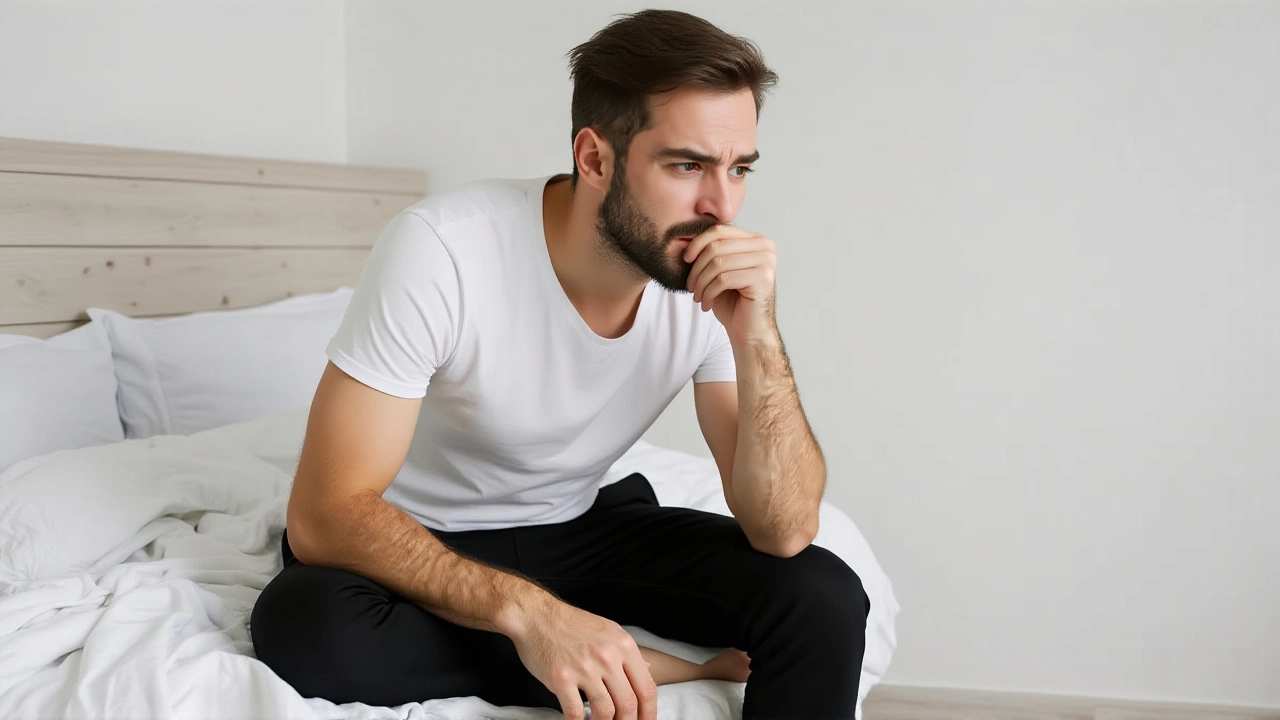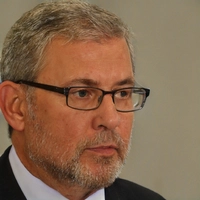On International Men's Dayglobally, communities will pause on November 19, 2025 — not to celebrate stereotypes, but to honor the quiet, often unseen acts of courage that define modern manhood. From fathers working double shifts to mentors in underserved neighborhoods, from firefighters risking their lives to men speaking openly about depression — this day is a mirror held up to what masculinity truly can be. The recognition, as detailed by The Bridge Chronicle in its November 20, 2024 report, isn’t about grand gestures. It’s about the daily choice to be kind when no one’s watching.
Why November 19? A Day Built on Purpose
While many assume International Men’s Day emerged from a recent social movement, its roots stretch back to the 1990s, with Trinidad and Tobago’s Dr. Jerome Teelucksingh pioneering its modern revival in 1999. Unlike International Women’s Day, which has global institutional backing, Men’s Day remains grassroots — powered by local advocates, educators, and media outlets like The Bridge Chronicle, Hindustan Times, and CNBCTV18. The date, November 19, was chosen to honor the birthday of Trinidadian historian Dr. Teelucksingh’s father — a symbolic nod to intergenerational responsibility. This year, with over 80 countries expected to mark the day, the focus sharpens: healthy masculinity.
The Quiet Revolution in Male Role Models
Look past the social media posts and you’ll find something deeper. The Bridge Chronicle published 30 original wishes — not the usual "strong man" clichés, but messages like: "Here's to the men who break stereotypes and embrace compassion" and "A good man leaves footprints of kindness everywhere he goes." These aren’t just greetings. They’re a cultural reset. For too long, masculinity was equated with silence, stoicism, and suppression. Now, the narrative is shifting. Schools in Canada, community centers in South Africa, and youth programs in India are using these quotes to spark conversations. One teacher in Delhi told me, "We showed the boys the quote, 'Strong men lift weights; stronger men lift people.' One kid wrote back: 'My dad never lifted a barbell, but he carried me to school every day when I was sick. He’s the strongest man I know.'"
Men’s Health: The Silent Crisis No One Talks About
Beneath the celebratory tone lies a sobering reality. According to the World Health Organization, men die on average 6 years earlier than women globally. Suicide rates among men are nearly four times higher in the U.S. and UK. In India, men account for 78% of all suicide deaths — a number that’s climbed 22% since 2018. Yet, only 37% of men seek therapy when struggling, according to a 2024 Lancet study. International Men’s Day isn’t just about flowers and thank-you notes. It’s about breaking the stigma that says asking for help is weakness. Campaigns in the UK, Australia, and Brazil are partnering with barbershops and gyms — places where men already gather — to offer free mental health screenings. "We don’t need another PSA," says Dr. Arjun Mehta, a psychiatrist in Mumbai. "We need spaces where men feel safe to say, ‘I’m not okay’ — without fear of being called soft."
How Media Is Shaping the Narrative
Media plays a crucial role. While Economic Times and CNBCTV18 focus on shareable quotes and WhatsApp templates, The Bridge Chronicle goes further. Its 14 philosophical quotes — "The bravest men are those unafraid to show their true emotions," "Gentleness is not weakness; it is a man's highest strength" — aren’t just poetic. They’re tools for change. In a 2023 pilot study at three Indian universities, students who engaged with these quotes showed a 31% increase in willingness to discuss emotional struggles. The same pattern emerged in youth groups in Nigeria and the Philippines. The message is clear: language shapes identity. And if we keep calling men "tough" or "unemotional," we’re not building strength — we’re building isolation.

What’s Next? Beyond One Day
International Men’s Day isn’t meant to be a one-off. Advocates are pushing for its inclusion in school curricula across 12 nations by 2027. In the U.S., the Men’s Health Network is lobbying Congress to designate November as Men’s Health Awareness Month. Meanwhile, tech startups are developing apps that track emotional well-being anonymously — no therapy required, just daily check-ins with prompts like, "What did you feel today that you usually hide?" The goal isn’t to replace professional care, but to normalize the conversation. And it’s working. In the last year, Google searches for "how to talk about feelings as a man" rose 147%.
The Bigger Picture: Equality Isn’t a Zero-Sum Game
Some critics argue that celebrating men’s day undermines gender equality. But that’s a misunderstanding. Equality doesn’t mean erasing one group’s experience to elevate another. It means recognizing that men, too, are trapped by rigid roles — roles that make them less likely to seek help, more likely to turn to violence, more likely to die alone. When we celebrate men who nurture, who listen, who cry — we’re not just helping men. We’re helping women, children, and entire communities. A society where men can be whole is a society where everyone thrives.
Frequently Asked Questions
Why is International Men's Day on November 19?
November 19 was chosen to honor the birthday of Dr. Jerome Teelucksingh’s father, the Trinidadian historian who revived the modern observance in 1999. The date symbolizes intergenerational responsibility and personal legacy, distinguishing it from other global observances. It’s not tied to any political event, but to the quiet, enduring influence of fatherhood and mentorship.
How does International Men's Day address men's mental health?
The day pushes back against the stigma that men shouldn’t express vulnerability. Campaigns now partner with barbershops, gyms, and workplaces to offer free mental health screenings. In 2024, over 120,000 men in 18 countries accessed these services through the day’s outreach. The goal isn’t just awareness — it’s access. By normalizing conversations about depression and anxiety, the movement is saving lives.
What’s the difference between International Men's Day and International Women’s Day?
International Women’s Day focuses on systemic inequality and advocacy for rights historically denied to women. International Men’s Day centers on health, emotional well-being, and dismantling harmful stereotypes that pressure men to be unemotional or dominant. They’re not competing — they’re complementary. Both aim for a world where no one is forced into a box because of their gender.
Are there official themes for International Men's Day 2025?
While there’s no global governing body, the 2025 theme endorsed by leading NGOs is "Men’s Health, Men’s Futures." It emphasizes preventive care, mental resilience, and breaking cycles of silence. The Bridge Chronicle’s curated quotes align with this, highlighting integrity, compassion, and growth over traditional notions of dominance or strength.
How can I participate in International Men's Day beyond social media?
Start small: call a male friend or relative and ask, "How are you really doing?" Support local men’s health clinics or donate to organizations like Movember or The ManKind Project. Encourage schools to include discussions on healthy masculinity in health classes. Real change doesn’t come from hashtags — it comes from honest conversations and consistent action.
Is International Men's Day recognized by the United Nations?
No, the UN has not officially recognized International Men’s Day, unlike International Women’s Day. However, it is formally observed in over 80 countries, including the UK, Australia, Jamaica, and India. Advocates are pushing for UN recognition, citing its alignment with Sustainable Development Goal 5 (Gender Equality) and Goal 3 (Good Health and Well-being).
